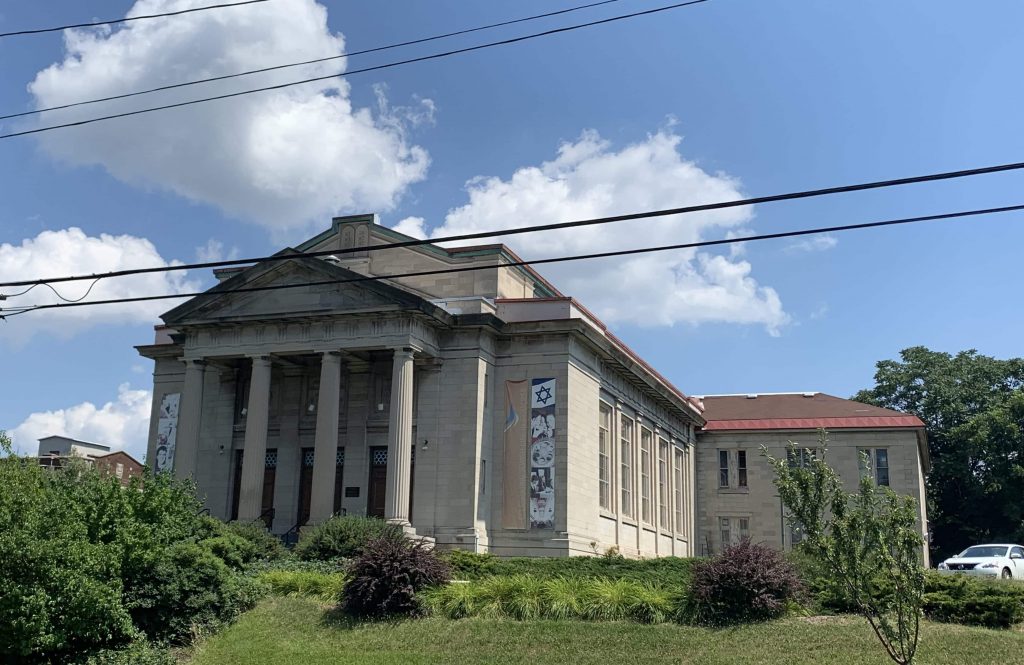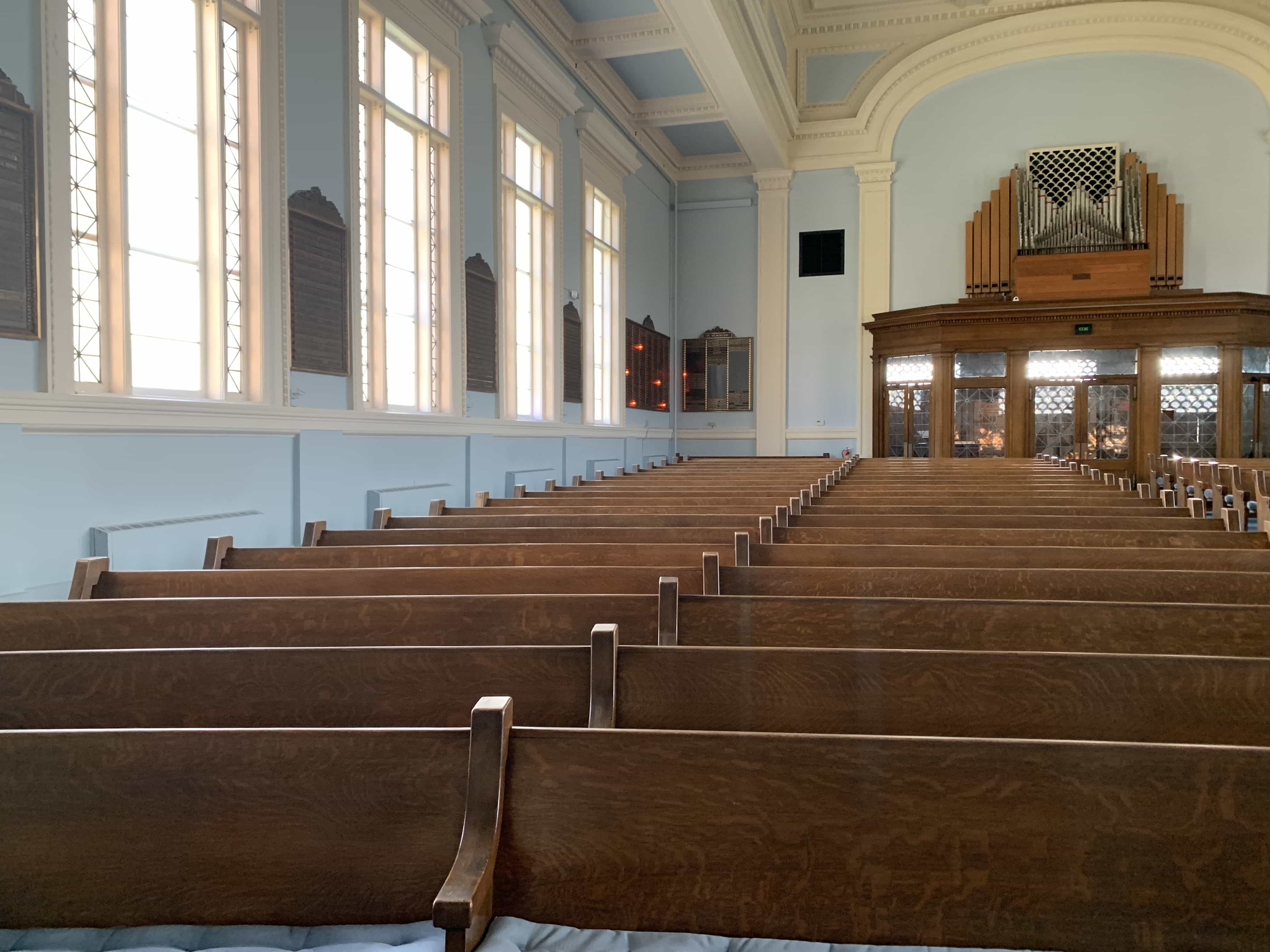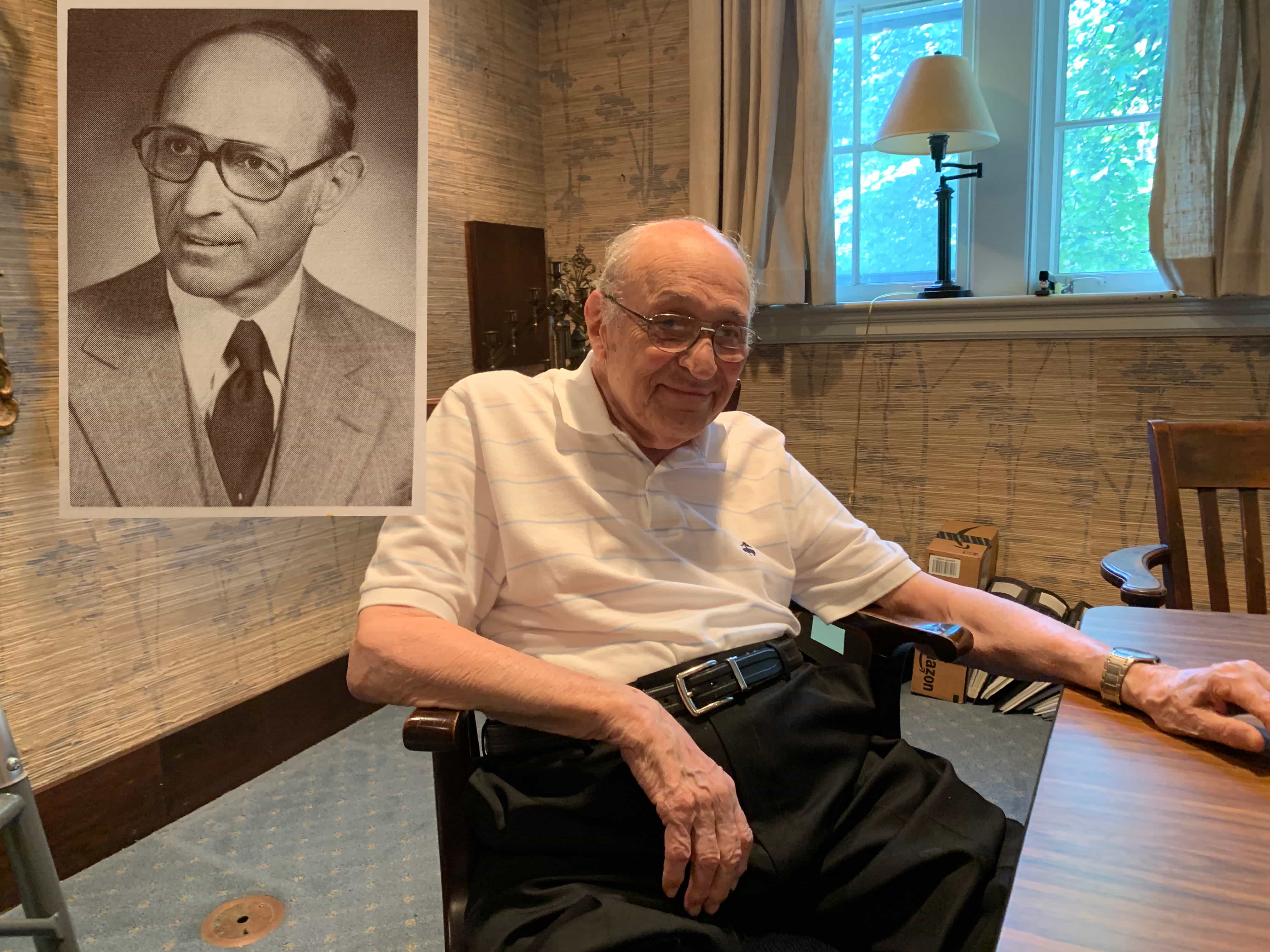Temple Concord set for possible student housing
Temple Concord: A casualty of campus housing

As light flooded in from the magnificent stained-glass windows, congregants filed into the Goldstein chapel, like many have their entire life, to take part in traditional Friday Shabbat services. With Rabbi Daniel Fellman out-of-town, the service was overseen by Cantor Francine Berg, who led the congregation in prayer and song before inviting members up to recite the Kiddush over wine and challah.
Despite every indication of normalcy, traditions that have been in place for over 100 years of meeting and prayer at the Syracuse temple will soon be no more.
Temple Concord, home to the ninth-oldest Jewish congregation in the United States, is going to be sold after 108 years at 910 Madison St. The temple’s congregation agreed to a $9 million sale that has put the historic building on a path to becoming a casualty to a growing Syracuse and college town trend: luxury student housing.
Student housing development in the United States grew 56.3% from 2006 to 2016 according to a Kroll Bond Rating Agency report, and one must only walk around the University Hill neighborhood to see the reality of this trend in Syracuse. Syracuse is home to new luxury student developments like U-Point, Copper Beech Commons, Theory and many others.
With the congregations size nearly half of what it was 40 years ago according to congregant Michael Moss, financial struggles have put Temple Concord in position to join this list.
The agreed upon sale of Temple Concord has brought out nostalgia of the Temple’s history, uncertainty about the congregation’s future and worry in the community about yet another out-of-state owned luxury student housing development.
The centuries-long history of the Society of Concord congregation and temple was remembered by 97-year-old former president Michael Moss. He was born a member of the temple’s congregation and has had a connection with the temple his entire life, later becoming an unofficial historian.
Moss said that the temple congregation’s connections have been felt across the world, especially during times of war. In an interview, Moss told stories about the temple’s role as a Union Army registration office during the 1860s, as well as two congregant members meeting on the shores of Utah beach in Normandy on June 6, 1944.

Throughout the history of the Reform Judaism temple, the congregation has always been welcoming, offering something to every member of the Syracuse Jewish community, Moss said.
Michael Fixler, Temple Concord trustee, said that the congregation is very engaged with the local Jewish and overall Syracuse community. The temple houses a food pantry and food bank that is open Friday mornings to those in need, serving over 100 families weekly, Fixler said.
“I helped start a garden,” Fixler said. “Volunteers from the congregation help grow vegetables to provide fresh vegetables to the food pantry on top of the non-perishable goods.”
Though the congregation will search for a new home, it is the community connection and programs such as the garden and food bank that could be lost.
“I think there is a real desire to continue the garden and food pantry,” said Fixler. “But it is going to be a long process.”
Over 90% of Concord’s congregation voted in favor of accepting the $9 million offer, Fixler said. According to Syracuse.com, the offer was made by a Georgia-based housing contractor, Landmark Properties, who will look to erect the next luxury student housing development in the University Hill area.
David Clifford, commissioner of assessment for the city of Syracuse, said out-of-state luxury student housing developers, like Landmark Properties, are motivated to come to Syracuse by million-dollar tax breaks that previous projects have received.

The growing number of housing development projects, almost all receiving million dollar tax breaks due to wording in article 485-a of New York state’s real property tax law, has caused officials like Clifford to worry if new projects, like the proposed development at Temple Concord, will even succeed.
“I think we’ve kind of reached the point where we may not have enough students to continue to build these,” Clifford said. “I think you’re already seeing that the market may be saturated.”
Ben Tupper, a local Syracuse landlord, shares Clifford’s fear of over saturation in the Syracuse student housing market.
“This last year was slower than previous years,” Tupper said. “And that is a direct result of the 2,000 more new bedrooms.”
Tupper also said he was fearful of the erosion of history in the University Hill neighborhood.
“With these old buildings,” Tupper said. “The more we level the more we lose.”
Tupper’s fear that Temple Concord will be torn down is shared by the congregation.
However, Temple Concord’s original building is recognized as a historic place on the national register, posing issues for any demolition plans, trustee Fixler said.
Though the physical building could remain, multiple congregants expressed fears that pieces of the temple’s history would be left behind in the move due to the sheer amount of artifacts such as the original stained glass, hundreds of years of board meeting minutes and memorabilia of famous congregants, such as 1955 NBA champion Dolph Schayes.
“Everyone is fearful that something will be forgotten,” Fixler said. “There is just so much history.”
For now, the history of Temple Concord exists within the building’s 108-year-old walls, and is remembered by lifelong congregants like Michael Moss. With the congregation’s size dwindling, and the historic temple set to become a casualty to luxury student housing, Moss was accepting that the time to sell the temple has come.
“I am upset in a certain way,” Moss said. “But I am realistic.”








